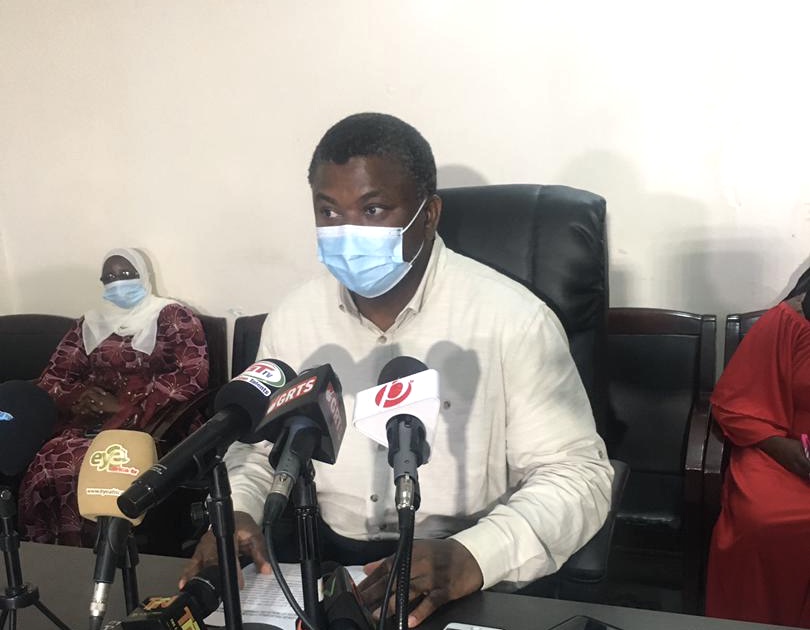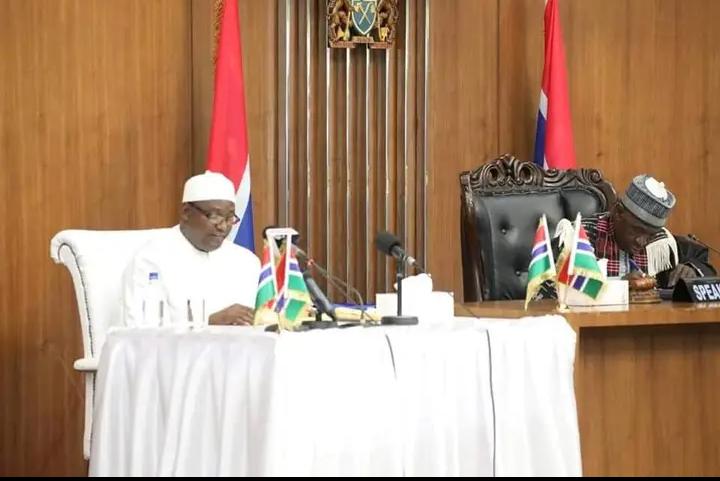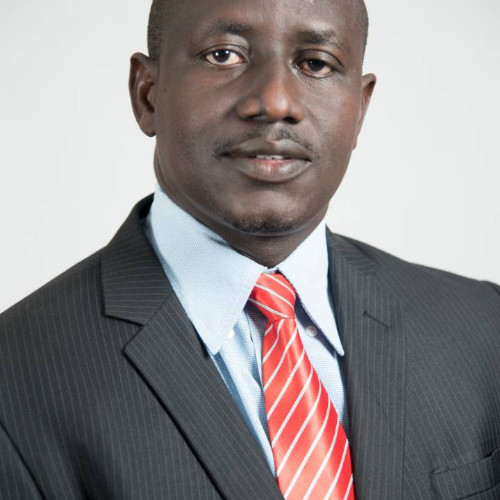The Minister of Health (MoH),Dr Ahmadou Lamin Samateh, on Wednesday 18 August 2021, declared a polio outbreak in The Gambia and said his ministry has plans to vaccinate children between 0-59 months to prevent them from getting the poliovirus. He made this declaration at the ministry chambers in Banjul.
Polio, or poliomyelitis, is a disabling and life-threatening disease caused by the poliovirus. The virus spreads from person to person and can infect a person’s spinal cord, causing paralysis (can’t move parts of the body).
“We are preparing for at least two massive supplementary polio vaccination rounds targeting 382, 908 children 0-59 months in each round. Our goal is to vaccinate all children 0-59 months in The Gambia.
We urged all parents to cooperate with our vaccinators during the vaccination campaigns to enable us to end this outbreak soonest.
Together, we have been able to defeat many vaccine-preventable diseases,” Health Minister Dr Ahmadou Lamin Samateh told Journalists on Wednesday at the Ministry of Health headquarters in Banjul.
It is impossible to note that this outbreak is an evidence of poliovirus circulation within the population but not mean a detection of polio paralysis in the population.
The Gambia has one of the best immunization programmes in the sub region, thanks to caregivers for being receptive to the vaccination.
Dr. Samateh said over the years, the country has achieved and maintained high polio vaccination coverage in its commitment to global polio eradication goals.
According to him, the two environmental samples that tested positive for polio were collected at Banjul the capital city and Kotu. “In 1988, the Global Polio Eradication Initiative (GPEI) was launched to guide global efforts to eradicate polio.
“Since then, the annual global polio incidence has decreased by more than 99%. The Gambia last detected a polio case in 1986 and was certified as polio-free in 2014,” he said.
He added that the country also conducted 27 high-quality supplementary immunization activities (SIAs) from 1997 to 2014 to boost immunity against polio. “These activities were carried out in the presence of a robust surveillance system to detect polio cases when they occur,” he said.
“In May 2021, with support from the World Health Organization and other partners, The Gambia initiated environmental surveillance to supplement the traditional (Acute Flaccid Paralysis – AFP) polio surveillance system. Presently, environmental samples are collected from three sites. Samples collected from the AFP cases and the environment are sent to the regional polio laboratory in Dakar for analysis.
“So far, no AFP sample from The Gambia has tested positive for polio. However, two environmental samples collected from sewage sites, one from Banjul and the other from Kotu, have tested positive for poliovirus type 2.
This has created a polio outbreak situation in the country since a single positive poliovirus case is considered an outbreak under the 2005 International Health Regulations, thereby requiring an urgent response to breaking transmission,” Dr Samateh said.
The Health Minister further stated that many other countries are already affected by this type of virus in the sub region.
He said sequencing results showed that the viruses detected in The Gambia are genetically linked to other viruses detected in the sub region such as in Guinea, Senegal, and Nigeria.
“Thus, evidence of importation. It is important to note that this outbreak is evidence of poliovirus circulation within the population but does not mean detection of polio paralysis in the population. In line with WHO recommendations, Polio outbreak response Standard Operating Procedures, and the International Health Regulations 2005, I officially declare this outbreak a national Public Health Emergency,” he said.
Dr Samateh assured that his Ministry would continue working with all relevant UN agencies and other development partners in confronting the outbreak, while they plan for vaccination response shortly.
He further told the press that they have enhanced their surveillance system to increase its sensitivity and quality in tracking polio cases in circulation.
In line with WHO, Polio Outbreak response Standard Operating Procedures, and the International Health Regulations 2005, the minister officially declared the outbreak a national Public Health Emergency.
Health experts who were at the press briefing described the disease as life threatening and urged parents to get their children vaccinated to prevent them from getting polio. Experts said the disease can be prevented if proper personal hygiene is being practiced by the people particularly care givers.
By Dawda Baldeh






Leave A Comment